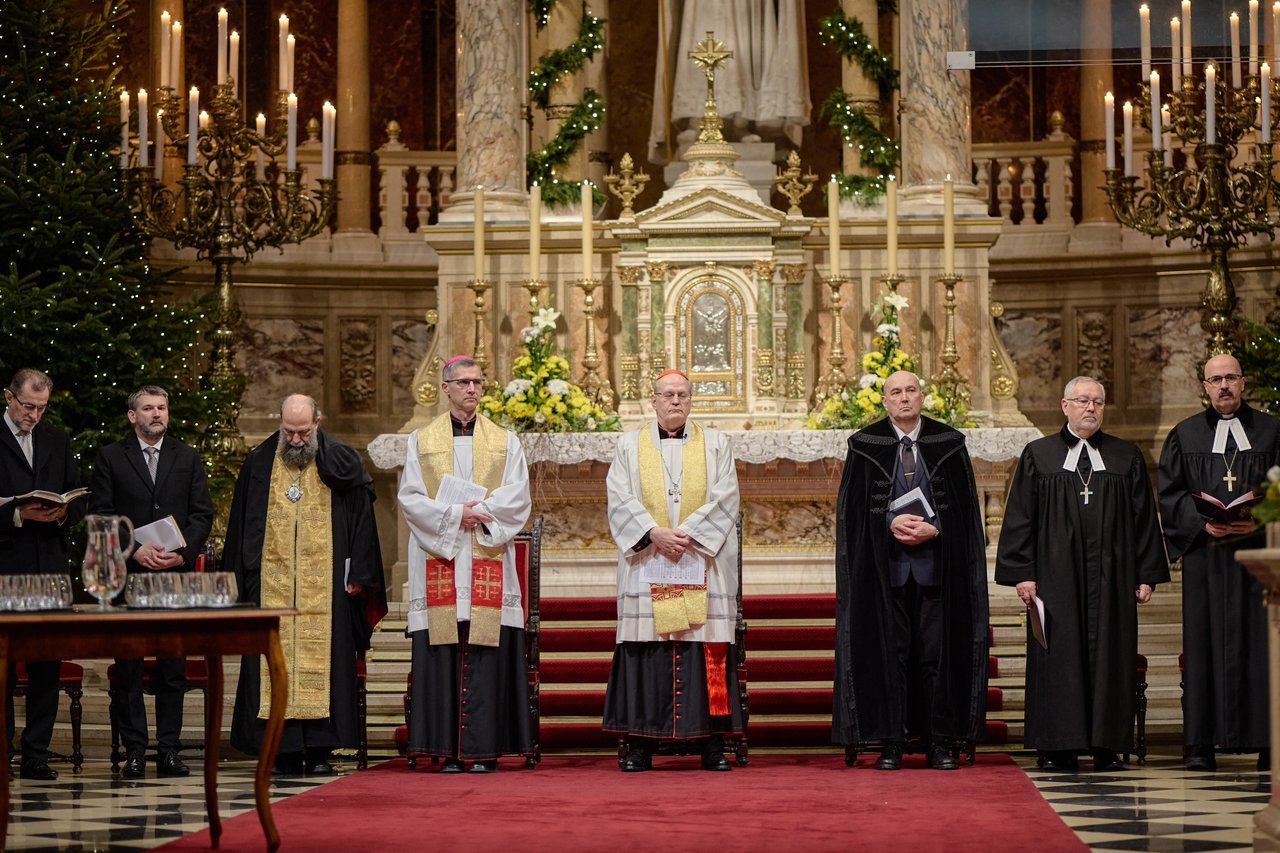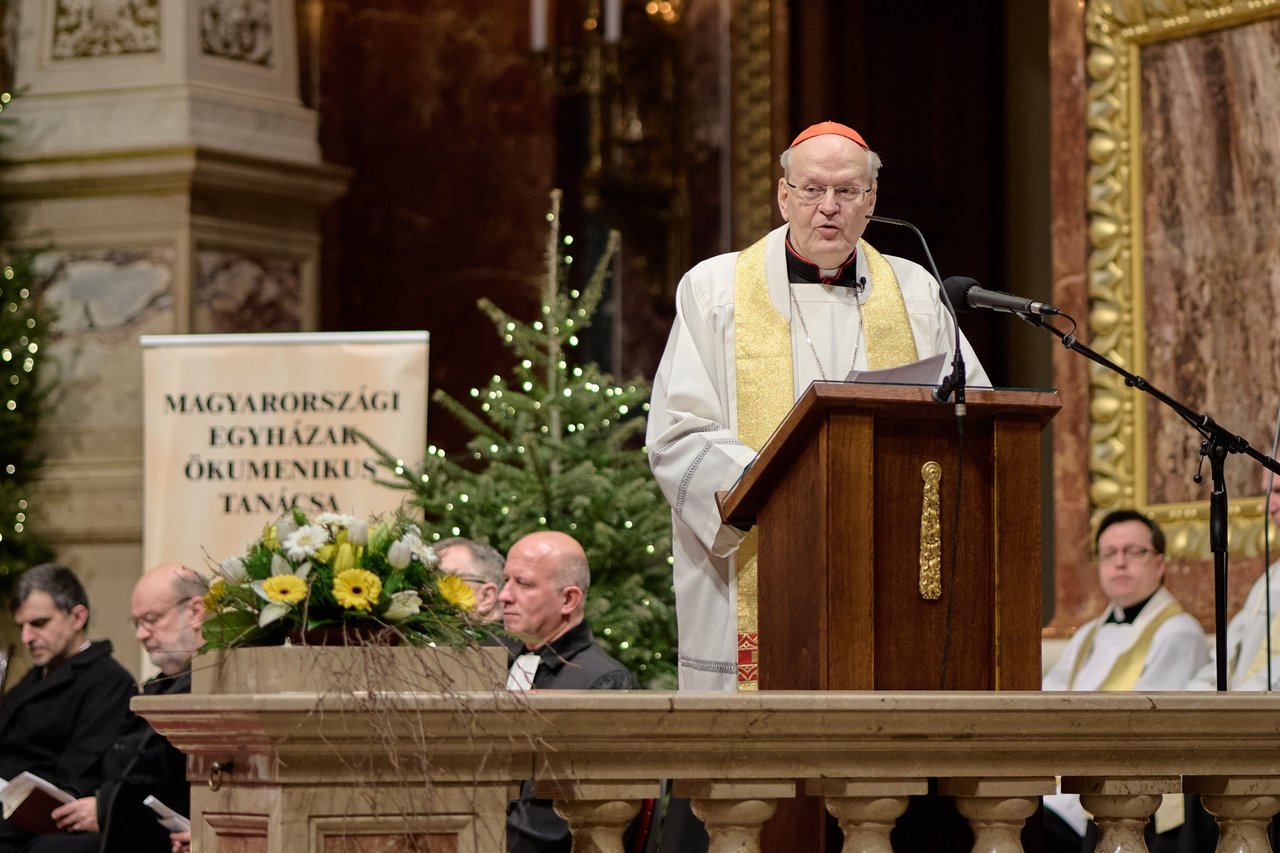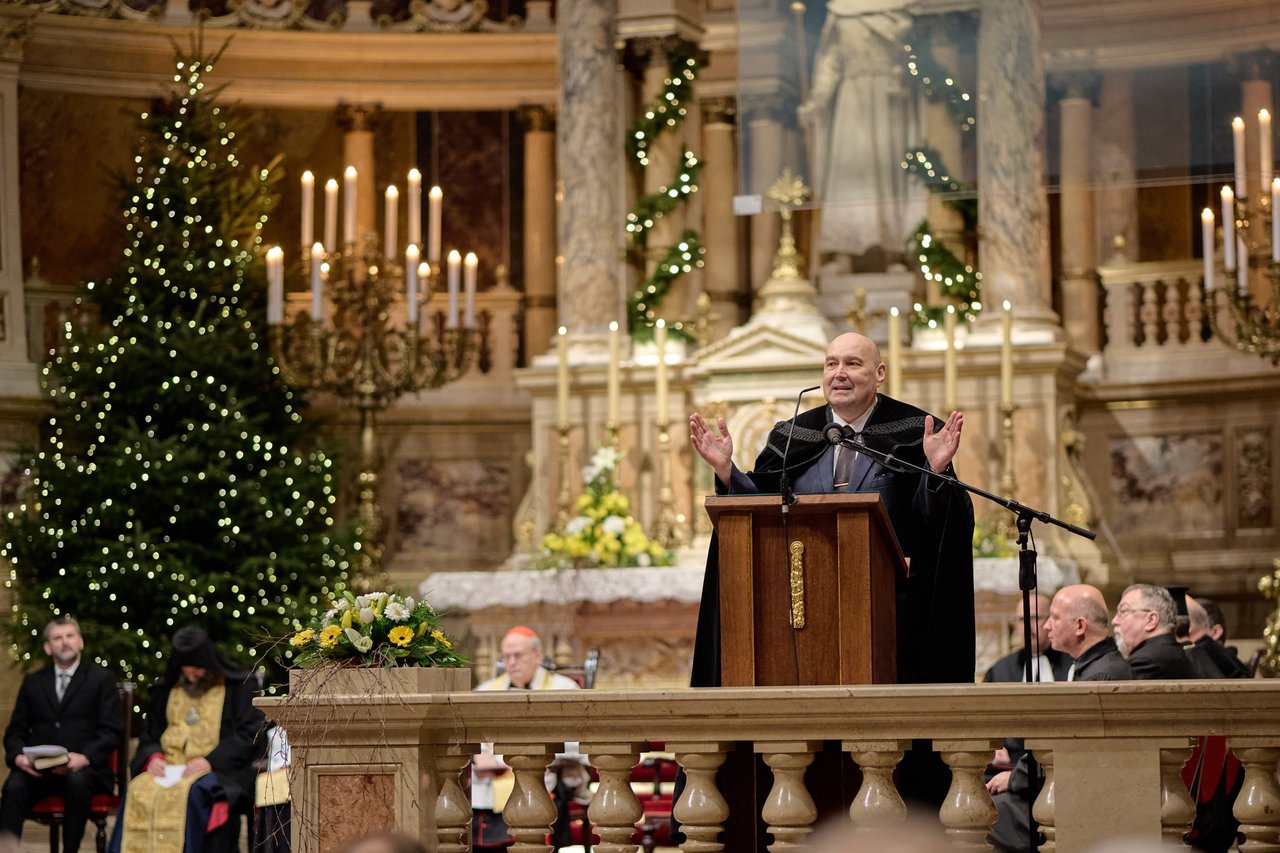Church leaders in Hungary prayed for persecuted Christians in a joint service at the opening of the Ecumenical Week of Prayer in St Stephen's Basilica. At the event, Reformed Bishop József Steinbach stressed that Christ himself became the Good Samaritan, and on the cross, he "went to the very end for us" to show his boundless love.
The theme of the 2024 Week of Prayer was chosen by the Ecumenical Task Force of Christians in Burkina Faso, Africa, from the Gospel of Luke: "Love the Lord your God with all your heart, with all your soul, with all your strength and with all your mind, and your neighbour as yourself."
Evangelical Lutheran pastor Vilmos Fischl, General Secretary of the Ecumenical Council of Churches in Hungary (ECCH), said at the beginning of the service that this week Christians are praying for visible unity. He pointed out that in Burkina Faso, "householders" offer water from a jug to a tired guest who has come from far away. This is a sign of hospitality as well as of communion, which is why a jug of water and glasses have been placed in the basilica.
In the spirit of the theme of the week of prayer, Pentecostal Church President Tamás Földesi read from the first book of Moses (Genesis 18:1-8), and then Vilmos Fischl explained, “As we gather now for prayer, we greet you as Abraham greeted the three visitors. Abraham gave them water to refresh themselves. In memory of this, we offer you water from this pitcher to refresh you.”
The Prayer of Praise and Thanksgiving was led by Fülöp Kocsis, metropolitan archbishop of the Hungarian Greek Catholic Church. The prayer of confession was recited by Reformed deanJózsef Szloboda. Afterward, Methodist Superintendent László A. Khaled read the story of the Good Samaritan from the Gospel of Luke, followed by the prayer of Psalm 138 by János Papp, President of the Baptist Union of Hungary.

Photo: Milán Magyaródi
In his homily, Cardinal Péter Erdő, Archbishop of Esztergom-Budapest, spoke of the importance of "helping love," which unites Christians, and extends not only to Christians but to all people. He recalled that Christians are united by the fact that they are all disciples of Christ and that they all acknowledge Jesus of Nazareth as the Messiah. Then his life, death, and resurrection will guide us all," he said.
Explaining the story of the Good Samaritan, the central Gospel passage of the week of prayer, Péter Erdő emphasized that the message of the parable is that "for God's sake, we must turn to one another with helping love, and we cannot exclude anyone from this love," "we cannot say that our love no longer applies to anyone." "That is why it is such a joy that our churches and charitable organisations, but also our country in general, are helping people who are suffering from hunger, war, natural disasters, or even persecution, whether in the Middle East or Africa", the Cardinal said.
The Roman Catholic Archbishop also pointed out that this help alone could not be enough to solve the misery of whole regions, just as the help of the Good Samaritan did not replace all the plundered property of the plundered man. Still, "the first help given at a moment of crisis and the reassuring feeling of human love can give hope to the distressed." Péter Erdő, quoting the Apostle Paul, also said that the impact of helping love is even greater because "through our mediation it makes others thankful to God."

Photo: Milán Magyaródi

Photo: Milán Magyaródi
In his sermon, József Steinbach, Reformed Bishop of the Transdanubian Church District, President of ECCH, pointed out that at the beginning of the parable of the Good Samaritan, the scribe's question "What shall I do to gain eternal life?" highlights the most significant problem of human existence. Therefore, in this world, we want to live and realise everything right here and now. This scribe is interested in the real solution because man, with his own wisdom, is helpless before death. Eternal life is an "inheritance" from God, not for us to fight for, ready for us to accept. Jesus Christ has obtained this inheritance for us on the cross of Calvary; it is a gift," the Bishop stressed.
József Steinbach stressed that it is precisely from Jesus that man receives eternal life, who not only told the parable of the Good Samaritan, but also lived it. Christ answered the question of who is our neighbour by extending the concept of neighbour to all our fellow human beings. Not only did he speak of it, but he lived it; he made the merciful love of the parable a reality. He himself became the Good Samaritan, and on the cross, he went to the very end for us to show his boundless love. He died for us, for us, and in our place, to take away all the sins and transgressions of our lives so that we might be saved and have eternal life. He wants to form us into such merciful people. The visible sign of gaining eternal life is to praise the Lord at all times, in all circumstances. "He is the Lord of history, the Lord of the cosmos, and in his hands are the peoples and the life of all of us. We have eternal life if we can thus praise God and listen to his word. It is also a sign of eternal life if we behave as authentic followers of Christ and dare to be merciful in today's merciless world. Let us take the merciful risk of Christ's love, for we already have eternal life!" József Steinbach pointed out. He stressed that he imagines all this in concentric circles.
“If we have eternal life, then it is possible to live more slowly, more meaningfully, to start again, to forgive, to love and not to want everything here and now, because everything is ours, because we have eternal life, and that alone is the chance for this life on earth to be different,” the Reformed Bishop concluded his thoughts.
At the end of the service, the participants prayed together for the persecuted Christians as the starting day of the joint programme of the Hungarian Catholic Bishops' Conference, and the ECCH is also the Sunday of Prayer for Persecuted Christians from 2018. The service was attended by the leaders of the member churches of ECCH.
The report is based on a report by the Hungarian News Agency (MTI).